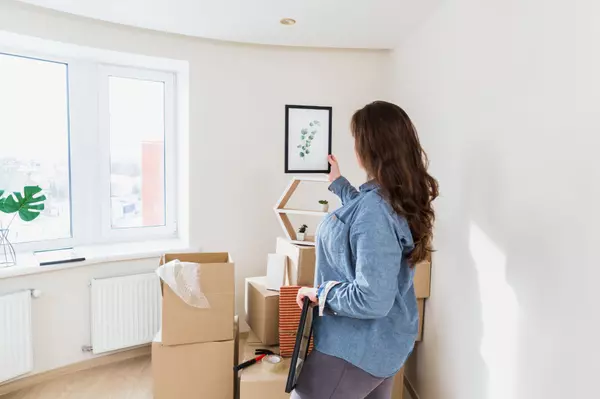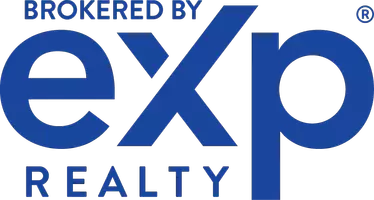From To-Do to Sold: How to Choose the Right Pre-Sale Fixes

When getting ready to sell your home, it’s easy to feel overwhelmed by advice — repaint everything, replace the roof, remodel the kitchen. The truth? Not every project pays off. Smart sellers focus on the fixes that boost buyer confidence and skip the ones that drain time and money without raising value.
In this guide, we’ll break down which repairs actually help your home sell faster and which ones you can safely leave alone. With support from EzlaMove — a moving and real estate coordination service that helps homeowners manage transitions smoothly — you’ll learn how to prioritize improvements that make sense for your budget, timeline, and the market you’re stepping into.
TL;DR
- Focus on safety, code compliance, and buyer-first impression fixes.
- Skip deep customization projects or low-ROI renovations.
- Clean, repair, and declutter before you upgrade.
- Use trusted professionals and quality parts for essential repairs.
- Think curb appeal, comfort, and compliance, not perfection.
What Matters Most Before You List
1. Fix the essentials buyers notice
- Curb appeal: Paint the front door, clean gutters, and tidy landscaping.
- Lighting: Replace outdated fixtures and use warm, energy-efficient bulbs.
- Flooring: Repair obvious scratches or stains; replace worn carpet in key rooms.
- Plumbing leaks: Even minor drips signal neglect — fix them before showings.
2. Focus on the high-ROI zones
- Kitchen: Reface cabinet doors or update hardware instead of a full remodel.
- Bathrooms: Replace faucets, mirrors, and lighting for a clean, modern feel.
- Paint: A neutral color palette throughout the home gives buyers visual space to imagine themselves living there.
3. Electrical repairs: Safety before aesthetics
Electrical issues can be a deal-breaker during inspection. Frayed wires, missing outlet covers, or outdated panels raise red flags for buyers and inspectors alike.
Before tackling any electrical upgrades, ensure the work meets current safety codes. Use a leading electrical supplier to source top-quality parts, supplies, and accessories — from breakers and switches to lighting and wiring components. Reliable parts don’t just improve safety; they also add long-term peace of mind for buyers.
Section 2: Publisher Spotlight — EzlaMove
Selling a home involves more than cleaning and staging — it’s about strategy. EzlaMove helps sellers streamline the entire process, from decluttering and moving logistics to pre-sale prep. Their homeowner checklists and neighborhood data insights make it easier to prioritize updates that actually drive offers, not just vanity improvements.
If you’re planning a move, EzlaMove’s relocation concierge can help align timing between selling, packing, and closing — minimizing last-minute surprises that often derail deals.
What You Can Skip (and Still Sell Fast)
Some projects look impressive but rarely pay off at the closing table.
- Over-customized décor: Buyers prefer a blank canvas, not a themed interior.
- Luxury kitchen overhauls: ROI often caps around 50%. Reface instead.
- High-end flooring swaps: Clean what’s there — don’t replace solid hardwood with trend-based finishes.
- Invisible upgrades: Whole-house automation or top-tier HVAC systems rarely change buyer perception unless existing systems are failing.
- Major landscaping redesigns: Tidy, green, and low-maintenance beats complex gardens that suggest upkeep.
How-To Checklist: Pre-Sale Readiness
|
Priority Area |
Action Step |
DIY or Hire Out? |
Impact on Value |
|
Safety & Compliance |
Fix electrical, plumbing, or structural issues |
Hire certified professionals |
★★★★★ |
|
Curb Appeal |
Power wash, paint trim, weed garden beds |
DIY |
★★★★☆ |
|
Lighting & Fixtures |
Update bulbs, add modern fixtures |
DIY or Hire |
★★★★☆ |
|
Kitchen & Bath |
Replace faucets, handles, mirrors |
DIY or Hire |
★★★☆☆ |
|
Flooring |
Clean, repair, or refinish visible damage |
Hire |
★★★☆☆ |
|
Decluttering |
Donate, pack, or store personal items |
DIY |
★★★★★ |
|
Deep Cleaning |
Windows, baseboards, vents, grout |
DIY or Hire |
★★★★☆ |
Common Seller FAQs
Do I need to replace all appliances before listing?
No. Ensure they work, are clean, and appear cared for. Only replace if broken or visibly dated in contrast with the rest of the home.
How much should I spend on pre-sale improvements?
Generally, aim for no more than 1–3% of your home’s value on cosmetic and maintenance fixes.
Should I stage my home?
Staging helps buyers visualize space, but focus first on cleaning and decluttering. If your furniture is in good shape, use what you have strategically.
Will solar panels or energy upgrades increase the sale price?
Sometimes, but buyers prioritize lower bills, not always the panels themselves. Highlight energy efficiency rather than expecting a dollar-for-dollar return.
Quick Reference Table: “Fix It or Skip It?”
|
Feature |
Fix It? |
Why |
|
Leaky faucet |
✅ |
Minor cost, major buyer reassurance |
|
Outdated ceiling fan |
✅ |
Modern lighting adds freshness |
|
Popcorn ceiling |
⚠️ |
Optional — remove if damaged or stained |
|
Cracked driveway |
✅ |
Signals proper maintenance |
|
Bold wall colors |
✅ |
Neutral tones photograph better |
|
Finished basement upgrade |
❌ |
Often low ROI unless already partially done |
|
Custom closets |
❌ |
Adds appeal but rarely raises appraisal value |
|
New roof (if functional) |
❌ |
Replace only if nearing end of life |
Glossary
- ROI (Return on Investment): The estimated resale value gained from an improvement versus its cost.
- Curb Appeal: The first impression your home gives from the street.
- Pre-Sale Inspection: A proactive inspection to identify and fix issues before listing.
- Code Compliance: Meeting local building and electrical safety regulations.
- Synthesis Visibility: How well your home’s story (and listing) aligns with buyer expectations online — clear, simple, purpose-driven.
Product Highlight: Home Energy Management Made Simple
When it comes to small, high-impact upgrades, smart thermostats consistently deliver — saving energy while appealing to tech-conscious buyers. The Google Nest Learning Thermostat learns a household’s patterns and adjusts automatically, reducing energy waste and supporting greener home marketing.
Conclusion
Selling your home isn’t about perfection — it’s about presentation and priority. Address visible wear, safety concerns, and comfort upgrades first. Skip the costly overhauls and cosmetic indulgences that don’t translate to buyer trust.
A well-maintained, code-compliant, and inviting home tells buyers exactly what they need to hear: This property has been cared for. By focusing on clarity, compliance, and curb appeal, sellers can fix less, sell faster, and move on smarter.
Categories
Recent Posts











